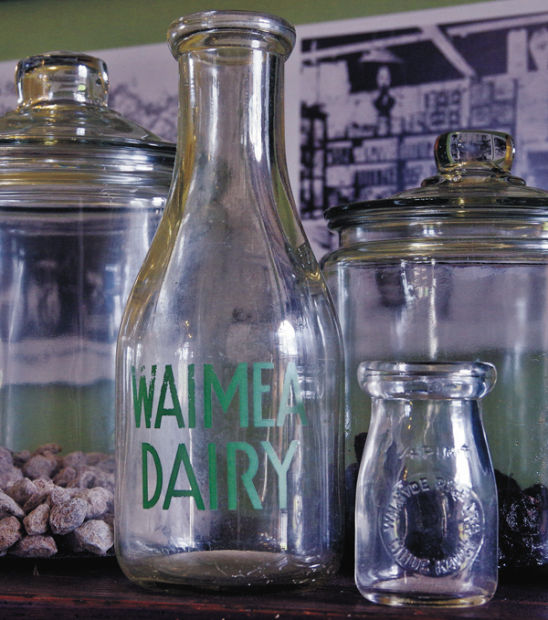LIHUE — There was a time when dairies, albeit smaller ones, were a common sight on Kauai, especially near the turn of the 19th century, when the island’s broad range of immigrant workers created a market for dairy products.
At that time, the influx of Americans, British, Germans, Scottish, Norwegians and Portuguese, brought in to work on the island’s plantations in the 1880s, created a demand for dairy products, according to Kauai Museum archives.
Plantation owners, in turn, either maintained small dairies, such as the Makaweli Plantation and Koloa Plantation dairies, or contracted with enterprising individuals to supply their workers with dairy products.
By 1923, a total of 34 dairy cattle farms were operating on Kauai, The Garden Island columnist Hank Soboleski wrote in a 2010 TGI article.
John G. Abreu’s dairy near the Lawai pineapple cannery, for example, bottled 65 quarts a day from a 25-cow herd, Soboleski wrote.
Another dairy, the Lihue Plantation Dairy, milked 24 cows to produce 213 quarts per day that were sold to the general public.
Many of the dairy operations on Kauai, however, did not survive the post-World War II period because they had to conform to increasing health regulations, such as pasteurization, that required building expensive facilities.
“The small guys couldn’t stay in business,” Kauai Museum Collections Curator Chris Faye said. “It was just too expensive — they just didn’t have enough customers.”
By the early 1960s, the Waimea Dairy on the island’s Westside and Sokei Dairy in Kapaa became Kauai’s two largest dairies, according to Kauai Museum archives.
The Sokei Dairy, started by Ryoju Sokei, grew from a small milking operation with just two cows to include 300 acres of land in four different places as pastures and 200 cows by 1960, when he gave an interview that was later published in a 1988 University of Hawaii Press book “Issei: Japanese Immigrants in Hawaii,” written by Yukiko Kimura.
The over 500 gallons of milk produced every day went to customers that included schools, hotels, restaurants and hospitals in Hanamaulu, Lihue and Kapaa.
“We Okinawans have a characteristic of not giving up,” Sokei said in the published interview. “It was this characteristic that helped me to rise when I was lost.”
Waimea Dairy, at that time, was owned by the Kikiaola Land Company — one of two companies reorganized from the Waimea Sugar Mill Company — and included pasture lands for about 600 cows in Waimea, Kalaheo and Nukolii.
Both companies later sold their operations to Meadow Gold Dairy.
The Waimea Dairy, according to Meadow Gold archives, was acquired from the Kikiaola Land Company in 1964. Those archives, however, did not specify when Sokei Dairy was acquired by the company.
Calls to Meadow Gold Dairies Hawaii were not returned Tuesday.
The company’s Puhi milk processing and ice cream distribution facility later opened in 1979, allowing some self-sufficient dairy operations to take place on-island.
When Meadow Gold’s 170-acre Moloaa Dairy was completed in 1989, some of the company’s Waimea operations were moved to the Eastside, if not all of it.
Nearly 11 years later, the Moloaa Dairy, the island’s last dairy cattle farm, was shuttered by company officials “to cut costs to remain competitive with other milk producers,” according to a TGI article written at the time.
Other reasons cited for the closure included “competition in the marketplace from rapidly consolidating regional and national processors that enjoy advantages of large-scale production in lower-cost areas and the relatively high land, labor and regulatory costs placed on smaller, locally based operations like the Moloaa dairy.”
The dairy land, according to the TGI article, was returned to its owner, Jeff Lindner, and the farm’s 460 cows, which had supplied 21,000 gallons of milk a week to the Puhi facility, were shipped to other Meadow Gold dairies in the state.
• Darin Moriki, county government reporter, can be reached at 245-0428 or dmoriki@thegardenisland.com. Follow him on Twitter at @darinmoriki.





